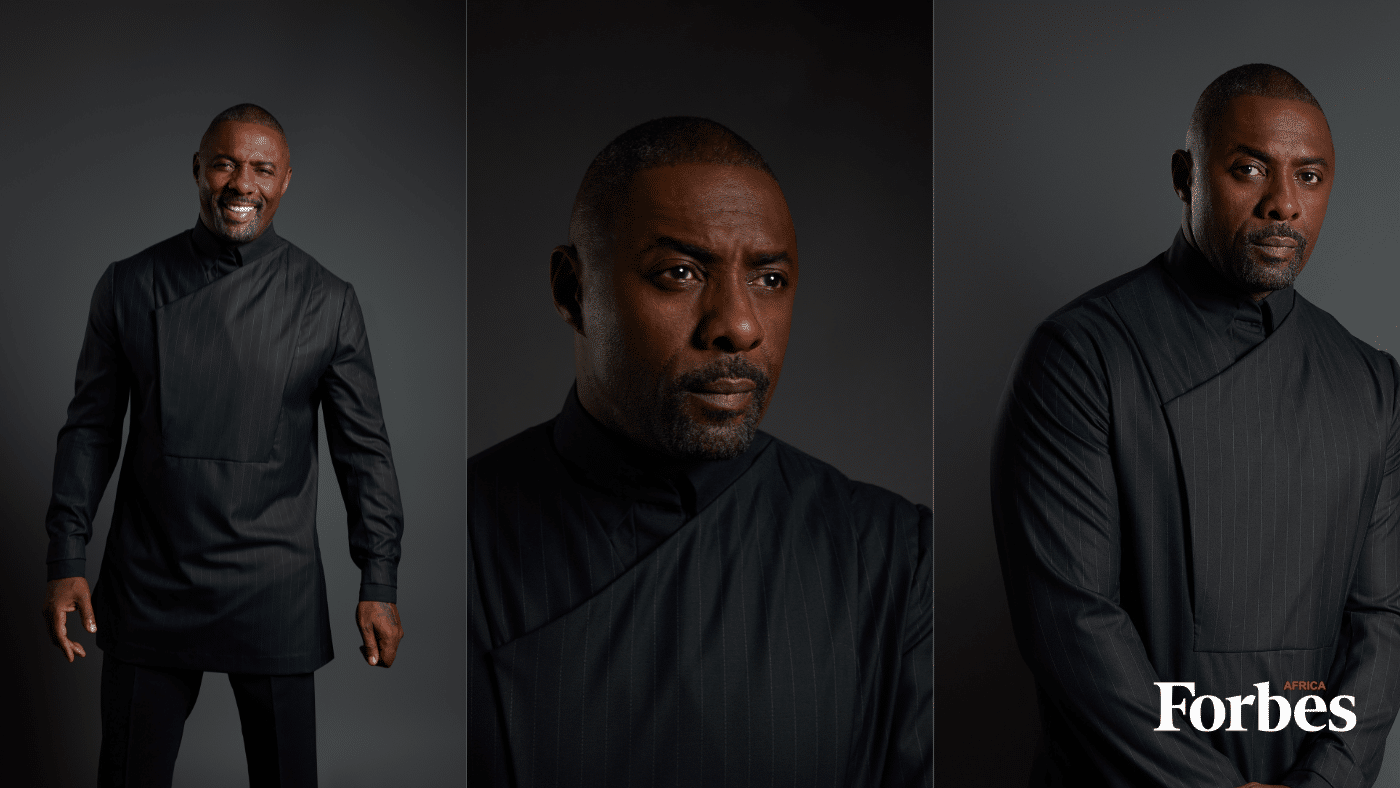From Hackney to Hollywood, Idris Elba has always had one thing on his mind – Africa. He is now investing in the continent’s movie industry, is on course to build a smart city in Sierra Leone, is tackling the climate crisis and as a true ‘son of the soil’, is also lending a helping hand to farmers on the ground in Africa.
On a warm day in an undisclosed movie set in London, Idris Elba has an hour before his next shot for the upcoming action comedy film, Heads of State.
“Hi, can you hear me?” he asks, as we begin our Zoom interview. “Hold on, I will just switch my camera on.”
And then the face that has graced many a magical silver screen, appears.
What follows next cannot be on any script. The actor can’t stop smiling.
“I cannot tell you how excited I am to be speaking to FORBES AFRICA,” he enthuses.
In a career spanning over two decades, Elba has brought to life iconic roles with lines like: “Does my face not remind you of what a grown man can do?” (Shere Khan in Disney’s live-action remake of The Jungle Book); and “I know who you are, and I see the line that you won’t cross. See, I know what’s on the other side.” (Rufus Buck in the Netflix Original The Harder They Fall).
But nothing felt more critically-acclaimed – and African – for Elba than playing former South African President, anti- apartheid revolutionary and political leader Nelson Mandela in the 2013 biographical film Mandela: Long Walk to Freedom; a role which the actor tells FORBES AFRICA was “significantly unbelievable” but also one he was “incredibly nervous” about.
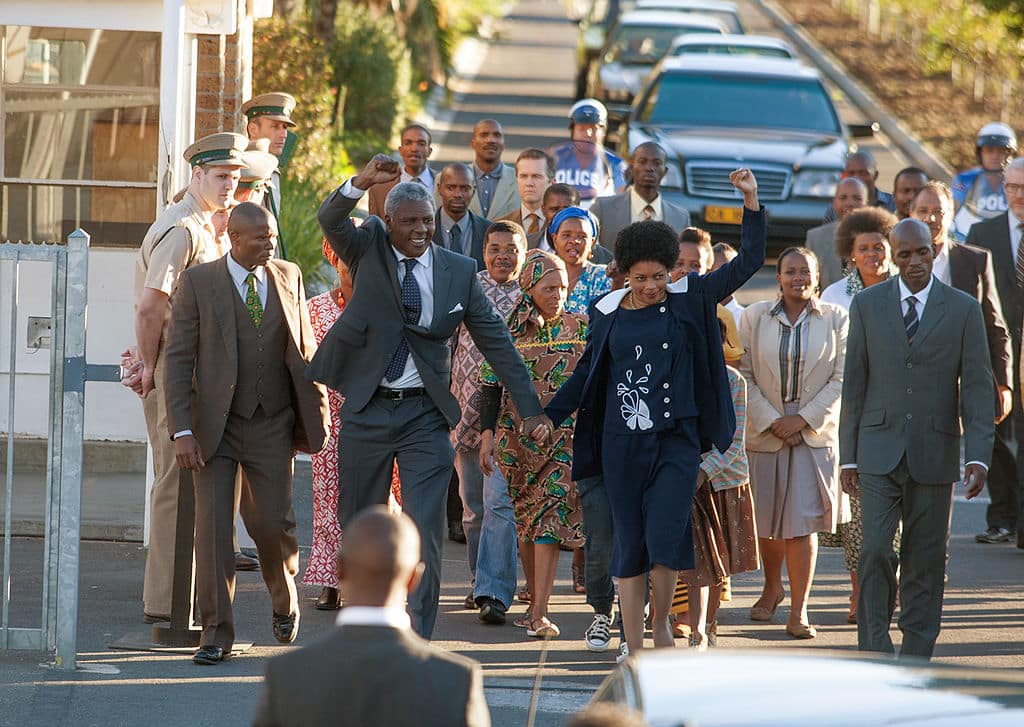
“There is an incredible array of talented South African actors that could have played that role and that should have played thatrole,” he explains. “And I almost felt like ‘whoa, is it my place to play Madibs?’ But when I got to South Africa, on my journey and [doing] the research and meeting the people, walking through Soweto (township in South Africa where Mandela lived), I felt different.”
This “difference” is what prompted critics to look into the biopic with great interest.
“The performances are outstanding, headlined by Idris Elba’s powerfully convincing portrayal of the iconic revolutionary and forgiving South African president,” international film critic Mike Massie wrote.
“The British actor Idris Elba conveys the agony as well as the nobility of Mr. Mandela’s quest for South African racial equality,” The New York Times said. “… Mr. Elba doesn’t look much like Mr. Mandela. He is considerably beefier. But he has the same sharp, hyper-alert gaze that acknowledges the world’s horrors while looking above and beyond toward a humanitarian ideal. He also captures Mr. Mandela’s distinctive accent with an uncanny accuracy. Mr. Elba is completely convincing as a natural leader with a ferocious drive.”
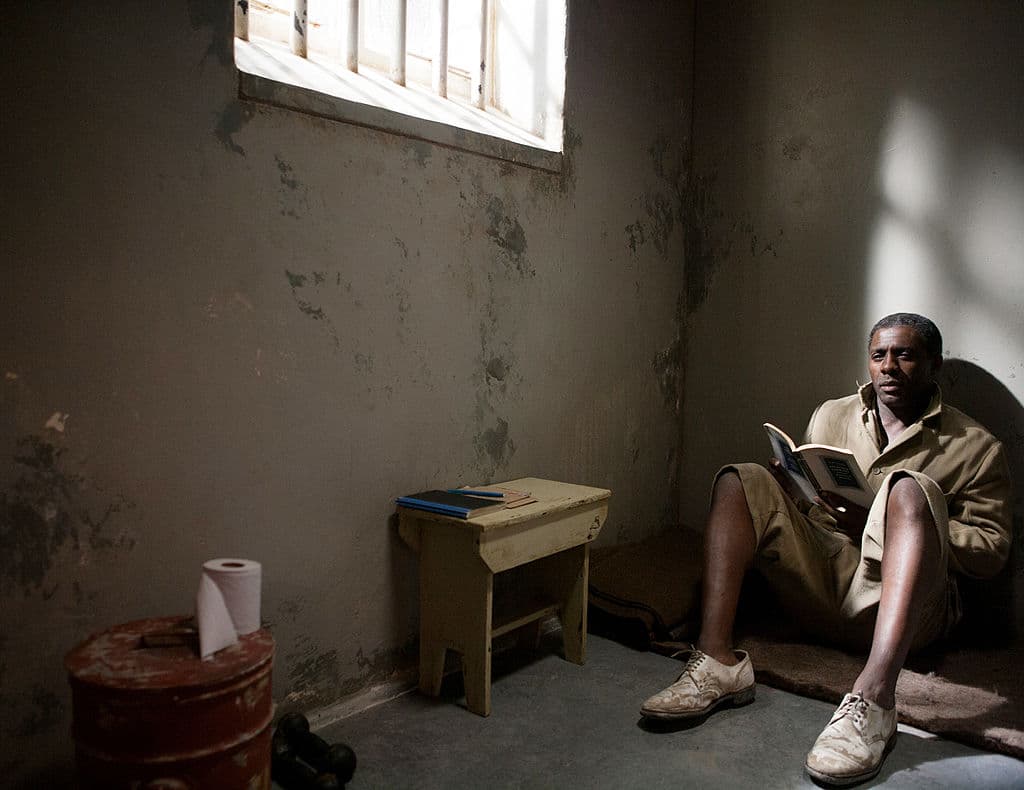
The months of preparation to play the Nobel Peace Prize laureate should have taken a toll on Elba, but instead it left him feeling “spiritual”.
This moment happened as he sat down with Mandela’s family ahead of the film’s shoot.
“Everybody in his family got to look me in the eye and ask me ‘why am I doing it’?” Elba recalls.
“And across the board, this was one of the big [moments] in my life that solidified my feeling that I’m a son of the soil, because South Africa has embraced me.”
Elba never met Mandela but the former president was aware the award-winning British actor would be playing him, so much so that he sent his well wishes.
This made Elba’s connection to the role even more special.
His own father added another layer of depth.
“My (late) dad, he had this big broad smile and white hair. And he loved Mandela,” smiles Elba. “When I told my dad I’m going to play him, he wept immediately… My dad died before the film came out and Madiba (title of respect for Mandela) died on the actual day of the royal premiere [of the film] in England. And the connection I felt, I don’t know how to explain it to you.
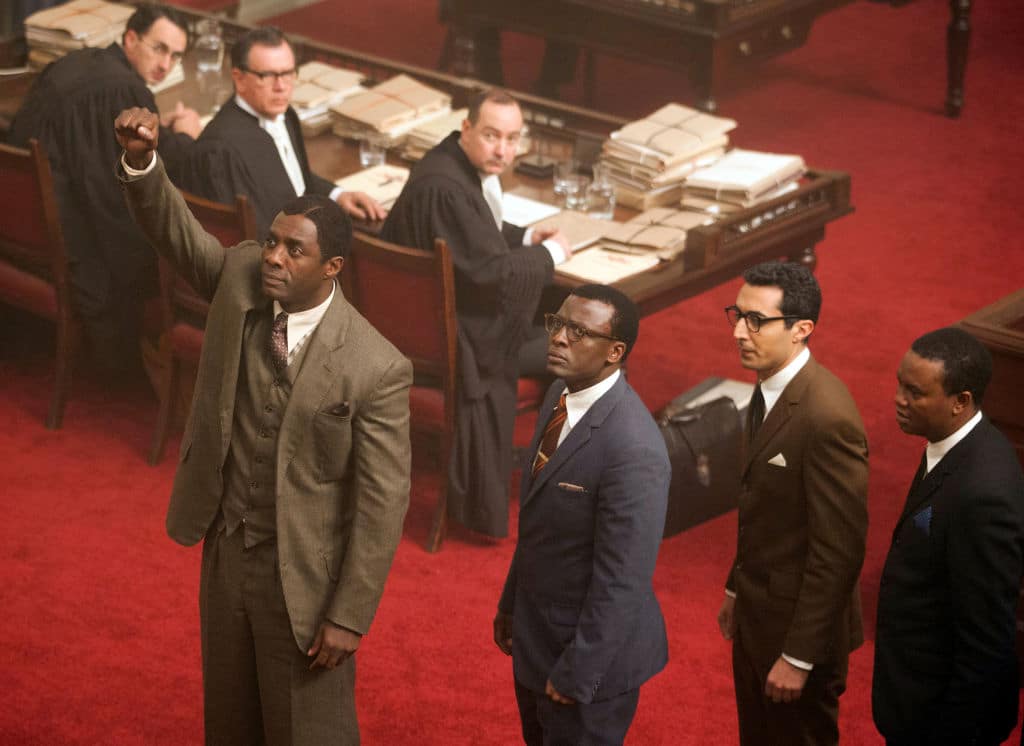
“And I don’t ever try to compare myself to Madiba, no way! But if I can be a fraction of his force and of what he stood and fought for…it was so pan-Africanist. You know then, I deserve the right to be able to cultivate this energy, because that man really sacrificed his life for this continent.”
What was ultimately born out of this experience was how Elba would soon see and define himself as “the Afro-optimist”.
On Africa’s Potential
For many, the story of ‘Idris Elba, the actor’ is simple: starting from Hackney and making it in Hollywood and beyond.
But the story of ‘Idris Elba, the Afro-optimist’ began even before the actor was born.
Elba’s father, Winston, born in Sierra Leone, West Africa, received a marketing scholarship to study in London. With his wife, Eve (born in Ghana), they journeyed to the United Kingdom (UK) in the 1960s with the intention of returning to Sierra Leone in the 1970s.
However, when their first child, Idrissa Akuna Elba was born, the “whole dynamic changed”.
“They decided to stay, which is fine. I’m very proud of being born where I was born,” Elba says and begins to chuckle as he adds: “But I very much was brought up in an African household, my mom being Ghanaian, and my dad being from Sierra Leone, I was a cross-section of Africa because my parents brought Africa with them.” But as a boy growing up in the London Borough of Hackney and East Ham, it was not always understood by the others around him.
“I grew up being teased for being African when I was younger, during the early 80s, where every image of Africa was about famine. And my name is Idrissa Akuna Elba. I got teased for that name.”
The irony was that there was nothing new or unusual about African immigrants living in the UK.
History says that Africans started arriving in Britain in the 16th century in the entourage of Catherine of Aragon. An illuminated manuscript from 1511 shows a black trumpeter in the retinue of King Henry VII. This resulted in an increase in trade between London and West Africa which fundamentally led to an increase in the nu mber of Africans.
According to the 2023 Cost-of-Living Report from communications company BHM UK, about 2.5% (1.4 million) of the population of England and Wales is estimated to be of African origin.
“When I was growing up, it wasn’t cool to be African,” Elba says. “But now it’s very cool to be African; from the music, to the fashion. It is all very cool. I’m very proud of it.”
The core of the work that Elba does for the African continent stems from the pride and conviction he has in the African growth story and the belief he has in the potential of its creative industry.
The film industry in Africa alone contributes roughly $5 billion to the continent’s gross domestic product (GDP) and currently employs five million people. However, per UNESCO, Africa’s creative industry has the potential to create 20 million jobs and generate $20 billion in annual revenues.
From 2016 to 2022, global subscription video- on-demand over-the-top streaming television platform Netflix’s African region contributed $218 million towards the GDP.
“Having injected over $175 million into sub-Saharan Africa since 2016, providing employment to more than 10,000 people on our productions…We can attest to the fact that there is a huge socio- economic benefit that Netflix injects into the ecosystems where we operate,” says Shola Sanni, Director of Public Policy, sub-Saharan Africa, at Netflix, in the company’s recent Socio-Economic Impact Report.
But Elba has mixed feelings about the growth of the entertainment industry on the continent.
On the one hand, he shares the same sentiment as many where he feels it is “about time” the world started realizing the talent existing in Africa.
“Africa needs to have the major artery, which is media, which is storytelling, to be bolstered and partnerships in the media industry is the way things are done. It’s not like an island; media in America and media in England are shared, these are partners that have massive infrastructures of connectivity that make it happen. And for a long time, Africa hasn’t been on that highway, hasn’t been part of that artery network. So I’m really glad that big corporations are looking at Africa, to sort of spread the wings, amplify, bolster and partner. On the other hand, I’m a little frustrated…”
Although Africa has generated platforms like Showmax (an online subscription video-on-demand service launched in South Africa but reaching audiences globally) and EbonyLife TV (an entertainment TV channel with largely Nigerian storytelling), Elba wants to see the network of content created by Africans for Africans placed on an African platform widened.
“Considering the opportunity, the population, the size and wealth of the continent, one would hope that there would be an ‘Africa Netflix’ that already exists, that is feeding, nurturing, growing talent, telling stories to Africa, for Africa.
“As much as I’m excited about the future of collaboration, I’m really hoping that this is also an opportunity for us and Africans to look at our own sort of media setup and structure, and bolster that internally, because what I don’t want to happen is yet another outside powerhouse starting to own African media and the African narrative.”
Evidently, Elba is starting this process himself.
In March this year, Elba announced that his film, TV and digital production company Green Door Pictures in the UK is collaborating with Nigerian powerhouse media mogul Mo Abudu and her media company, EbonyLife, to empower and uplift talent from Africa. For both founders, the partnership itself felt like a match made in heaven as both CEOs started their companies from a place of passion with the goal of empowerment.
For Elba, this was even more pertinent because, turning on the TV as a young African-British boy in East Ham and not seeing the world that he grew up in reflected on the screen bothered him. And for Abudu, it is about wanting “stories about me, for me, by me…it has been missing”.
The collaboration is about embarking on two pivotal endeavors that hold immense significance, Abudu says.
The first one is about being at the forefront of establishing creative academies across the continent, empowering aspiring filmmakers to unlock their full potential.
The second is about joining forces to curate an enthralling line-up of Afro-centric film and television projects that will captivate audiences worldwide.
“Idris stands as an unrivalled global star, driven by an unwavering commitment to nurturing local African and black talent while amplifying our stories to the farthest corners of the globe through his partnership with our production company,” Abudu tells FORBES AFRICA.
Elba too always admired how Abudu wanted to tell the African story in an authentic way. Their hope for this partnership is that original storytelling becomes the center of conversation in the film industry.
“Our remit is to tell stories that have both that authenticity of African storytelling, but also the appeal to be internationally-recognized as well. We think it’s important that commercial films tell the everyday stories of Africans, whether it’s in love, or in war…Mo and I both have decades of experience to be able to attract the right sort of partnerships. So we’re excited about our journey.”
Did you know?
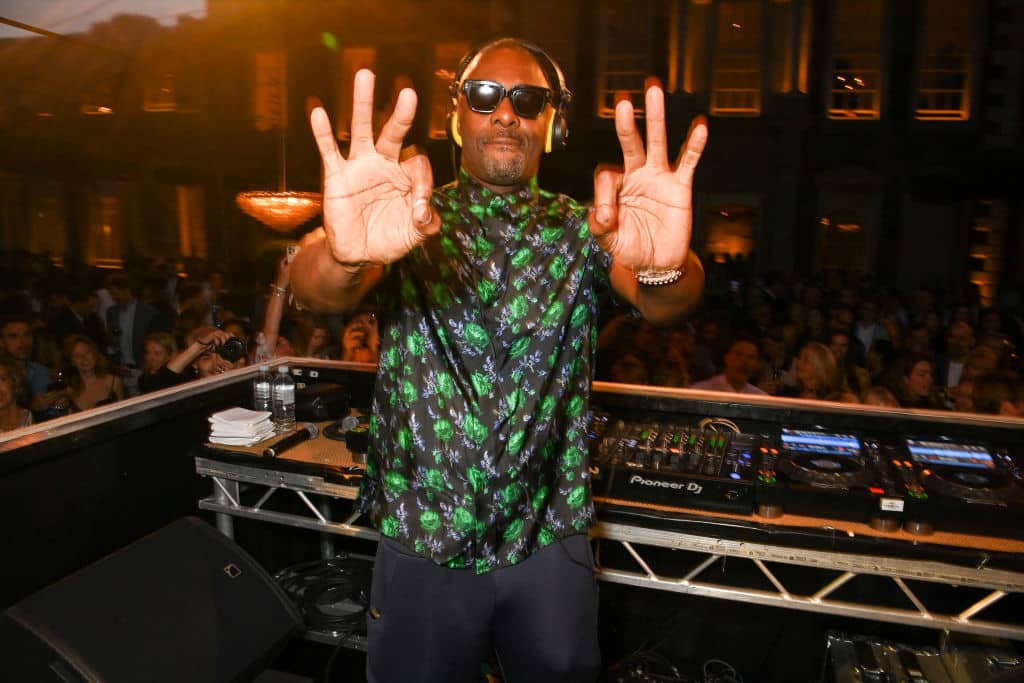
(Photo by Dave Benett/Getty Images for RH)
Idris Elba may be known to the world for his work on-screen, but off-screen, he is also a musician and DJ. “Thank you for bringing up my music,” Elba laughs during his interview with FORBES AFRICA.
“Because I’m often a little bit shy to speak about it. I’m a big grown man and everyone’s like, ‘you still making music like that’?”
As a musician, he has amassed millions of listeners and viewers, collaborating with some of the biggest names such as Sir Paul McCartney and American rapper Joseph Antonio Cartagena known as Fat Joe, as also with up-and- coming artists like Jessie Reyez and FaNaTix.
“I have a small [record] label. And the remit there is not necessarily just to work with big stars, but to work with people who are coming up. There’s so much talent across Africa, across England, across America. And for me, if anybody wants to work with me, and I love the music, let’s go!”
Integral to this is revisiting the Africa narrative. Much of the storytelling about development work in Africa is unethical and perpetuates stereotypical, and harmful, narratives about the continent.
A 2019 Africa No Filter report researched that the prevailing stories and frames about Africa focus on poverty, poor leadership, corruption, conflict and disease. These lead to narratives about
a continent that is broken and one where its people lack agency and are dependent on outsiders. The report further elaborated that stories that reinforce stereotypes about Africa often arise from the power dynamics between those who are telling the stories and those about whom stories are being told.
“What is lost with this imperialist view is incalculable. The dignity of the people of an entire continent. Serious analysis and comparison of approaches to solving global problems. The ability to learn from one another. The chance to see ourselves as part of a whole, more similar in our humanity than different. And the opportunity for true internationalism,” says Dr Mamka Anyona, a global health systems and governance expert, in the report.
More times than none, the portrayal of Africa in entertainment is also marred by misconception and stereotypes. There needs to be a systematic shift in creation when it comes to producing African stories. The “trauma films” discourse needs to be re-worked and reconsidered, says Elba.
“We need to do more of why Africa is a beautiful place, why the traditions mean so much. We want to tell those stories and encourage female directors and writers, as well as young men, to tell them,” Elba says. “I have played everything from the late, great Mandela to a war-torn leader in West Africa. I want to tell stories that put us in a positive light. I don’t have any regrets about making stories that describe a darker time in Africa’s history. But what I can do now moving forward is play an African superhero, some African billionaires, let’s play some African farmers, let’s talk about agriculture.”
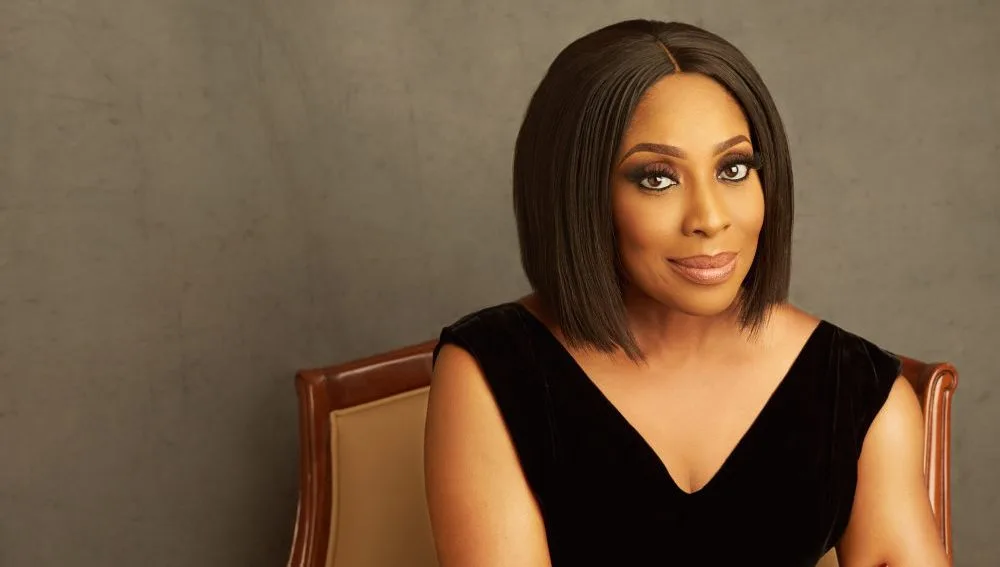
“Idris stands as an unrivalled global star, driven by an unwavering commitment to nurturing local African and black talent while amplifying our stories to the farthest corners of the globe through his partnership with our production company,”
Mo Abudu tells FORBES AFRICA
Elba plans to replicate Abudu’s EbonyLife Creative Academy in Nigeria across other regions like Ghana, Tanzania and Sierra Leone.
“With the horizon brimming with boundless opportunities, I eagerly anticipate the unfolding of these extraordinary ventures,” Abudu attests.
“The prospect of witnessing the confluence of Idris’ incomparable talent, unwavering dedication, and captivating persona with our collective vision at EbonyLife fills me with profound excitement. Together, we will continue to transcend boundaries and leave an indelible mark on the tapestry of global storytelling.”
“One thing I respect about Mo’s is that she’s really always gunning towards making better better. You know, African film- making can suffer from being good, without wanting to be better and compete on a national stage. And for me, it’s important for us to tell those stories internationally as well,” Elba adds.
In order to bolster storytelling on the continent, capacity needs to be built. This explains Elba’s vision of expanding with studios in Ghana and Tanzania.
In January this year, financial news website Business Insider ran a story on a potential under-discussion project in Tanzania.
In his Beast film promotional press tour, Elba reiterated that he is “really keen on the development of Africa”.
“Young Africans view me as a leader or a beacon. And I feel like I could bring something. So I’m keen to bring what I’ve learned in media and amplify it in Africa,” he added.
However, the conversation cannot happen without looking at how to invest more into Africa’s creative economy.
Investing More in Africa’s Entertainment Sector
“In this day and age, you can make a great film on your phone,” Elba laughs. “When we compare ourselves to Hollywood, we are always going to feel that we are falling short.”
According to Statista, on average, Africa produces 5,500 films per year, in comparison to Hollywood which in 2022, released a total of 449 movies in the United States (US) and Canada, up from 406 in the previous year. Although Africa’s production quantity
is higher, Hollywood’s productions tend to focus more on quality.
A lot of this has to do with budgets that Hollywood is more privy to. “Nearly 3,400 films were produced annually in West Africa, a number boosted mainly by the low-budget productions from Nollywood, the Nigerian cinema industry,” the Statista report read. “Similar productions have been spreading also through Kenya and Ethiopia. Consequently, around 1,500 movies were produced per year in East Africa.”
For Elba, in order to motivate investments into the sector, Africa needs to start from the beginning.
Education needs to be prioritized; courses that focus on building better stories, on what the cruxes of the cinema chain look like as well as a deep dive into how streaming services operate.
“You cannot make films on the street alone; you need the professionalism of studios, facilities,” he says.
Investing in the continent’s creative industry could prove to be very beneficial for Africa. The cultural and creative industries on the continent, according to reports, stands as one of the main sectors contributing to the employment, especially of rural women. A report from Baz-Art, a non-profit organization in South Africa, further elaborates that by 2030, the creative economy will employ 30 million people worldwide, generating an estimated $2.25 trillion in global revenue.
“The daydream is obviously that I want African cinema to be global and respected like other countries and their storytelling. But we have to start at a place where we have the facilities to be professional, and competitive,” Elba adds.
Many reports note investments in the continent’s creative industry, but the uptake has been slow.
A 2019 article published by the International Finance Corporation titled Lights, Camera… Investment? Supporting Growth in Africa’s Creative Industries says only about $22 million of total investment in African startups went to entertainment companies.
Elba adds: “I can have this fantastic South African filmmaker, he makes a beautiful film, it would win Oscars, but no one can see it. That’s the part we need to make; he might have made that film for $50, and it’s amazing, but no one sees it. So I’m more interested in how do we get the distribution models.”
There needs to be better support networks on taking African films to the next level and it “isn’t necessarily about having more budgets”.
“Of course, more budgets allow us to make more technically-advanced films but we want to see more African Afro-futurism sci-fi, we want to see stories that look at Africa, Africans on the continent, and that also make money.”
The African Film Industry: Trends, Challenges and Opportunities for Growth report by UNESCO shows how the industry, globally, generates $2.25 trillion, however, according to the Pan African Federation of Filmmakers (FEPACI), the African industry only generates $5 billion in annual revenue out of a potential $20 billion.
The potential that Africa has is a lot brighter than one thinks, Elba says. According to the Hobbs & Shaw actor, investment in startup business in Africa is up by 5% whereas in Latin America and other parts, it’s down 62%.
“But actually, there is a turn of the wind for startup culture in Africa. Although, we need to find ways to bolster internal investment. Africa has money. It’s not Africa that’s poor. It’s the people that are poor. Africa has opportunities, and we have to find the connective dialogue, the connective tissue strengthens that investment. I’m not an economist; I don’t know the specific answers on how we turn that leaf. But I do know that it does start with dialogue.”
And that dialogue for Elba goes straight to his latest project, probably the biggest of his career.
Building a smart city.
Taking It Back Home
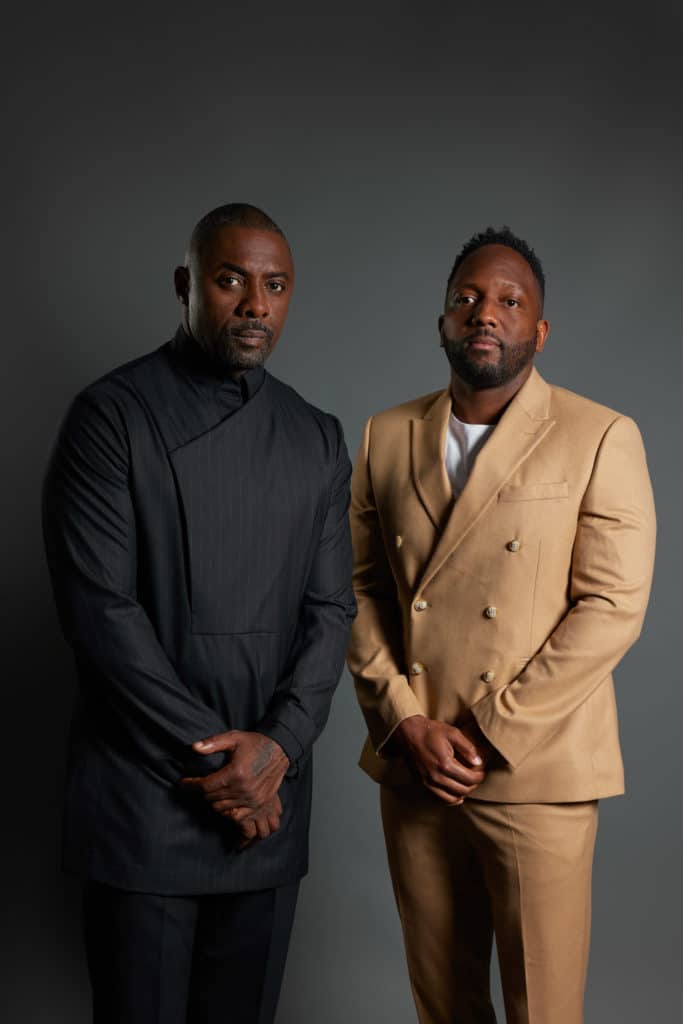
Growing up in East Ham, a young Elba would play in the streets with the other children. It was here that he once had a run-in with an even younger Siaka Stevens.
They had no idea then that years later, they would partner for multiple projects, movies and successful business ventures.
This partnership started with a WhatsApp message.
“I literally texted him; ‘Idris, I have got an amazing idea about a project in Sierra Leone that you could be a partner in. It’s something magical’. I didn’t think I would get a text back,” says British-Sierra Leonean entrepreneur Stevens, to FORBES AFRICA.
For both parties, this project was more than just a business conversation.
As the grandson of the late President of Sierra Leone, Siaka Probyn Stevens; Stevens had a vision of building a city within Sierra Leone that would not only be a tourist attraction and economic engine but also give back to the country.
He had had this dream from the age of 27 when his 14-year- old half-brother died, prompting him to return to the small West African country for the first time in 15 years.
“I remember this vividly, I remember when the doors of the plane opened, and the African breeze, the humidity…there was just this spiritual connection,” Stevens recalls.
“I just felt this is my home. And then from that day forth, I made a promise to myself that, ‘listen, you’ve amassed a lot of contacts… you have to somehow utilize [them] to bring business to Sierra Leone’.”
In the Atlantic Ocean off the south-western coast of Sierra Leone, Stevens came across Sherbro Island, about the same size as Chicago in the US, with a small population, and the potential seemed to dance in his mind.
After conducting extensive research and visiting the island, as someone born in Sierra Leone, Stevens recognized its potential for transformation and the positive impact it would have on the local community and the country as a whole.
For Elba, the inspiration came from his father and grandfather. “His father had just passed away and I remember speaking to him,” Stevens says.
“And he always said; ‘Siaka, I promised my grandfather and my father that I would help Sierra Leone or do something for Sierra Leone. And I’ve never been there’.”
On his father’s passing, Elba had vowed to use his platform to make a genuine and long-term contribution to the welfare of the country, and to shift the narrative about West Africa to one that’s positive and forward-looking.
“So he texted back saying ‘Siaka, listen, I’m a bit busy, I can’t meet at the moment, but I’ll call you to discuss one day’,” Stevens remembers. “I said to myself, ‘he is not going to call back’.”
But he did.
Elba mulled over it for two years. He wanted to think beyond just hotels and bring more structure to something the world has never seen. This led to a “blueprint” after researching the smart cities of the world such as Singapore and Dubai.
“That blueprint needed to have the government of Sierra Leone as a participant in this,” Elba explains. “We took our time to build together a team and what a framework could look like. We want [one] that allows the opportunity for investors to come in and say, ‘actually, this has been put together well’.”
Elba and Stevens came to understand, as they frequently visited the island, that the lack of connectivity to the mainland had hindered investment.
“We self-funded the investment of this to first of all, get it right,”
Elba explains. “There’s nothing like putting your own money into something for you to learn quickly, even if it’s outside your expertise.”
Sherbro lacks infrastructure, schooling, medical care, and local enterprise.
Elba and Stevens believe that with ingenuity and world-class expertise, the island can be a model for economic development. Although self-funded, there are plans to call for “the right type of investment” that attracts investors or VCs who care about the framework centered on the African growth story.
More Crossover Artists
- Khaby Lame, Senegal
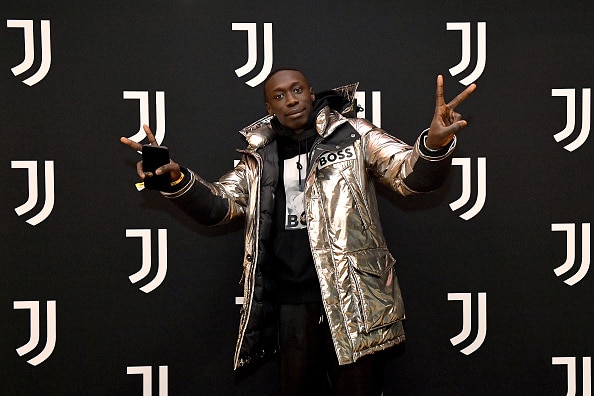
A Senegalese-Italian social media personality known to the world for his TikTok ‘life hack’ videos. Recently, Forbes reported that Lame now holds the title of most-followed TikToker for the first half of the year with more than 160.5 million followers.
2. Elsa Majimbo, Kenya
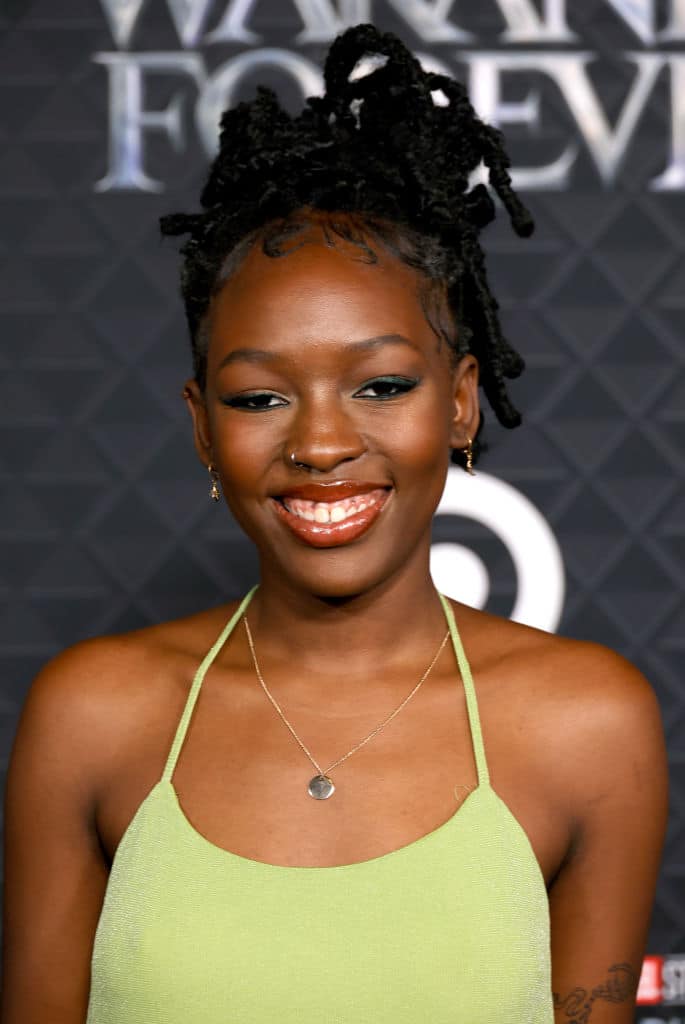
Majimbo famously told FORBES AFRICA in 2022 to “chase that bag, until it starts chasing you”. The comedienne became a household name from her Kenyan accent, the 1990s-themed sunglasses, the potato chip, and her hallmark giggle. The FORBES AFRICA 30 Under 30 alum has now amassed over 2.4 million followers on Instagram.
3. Lupita Nyong’o, Kenya
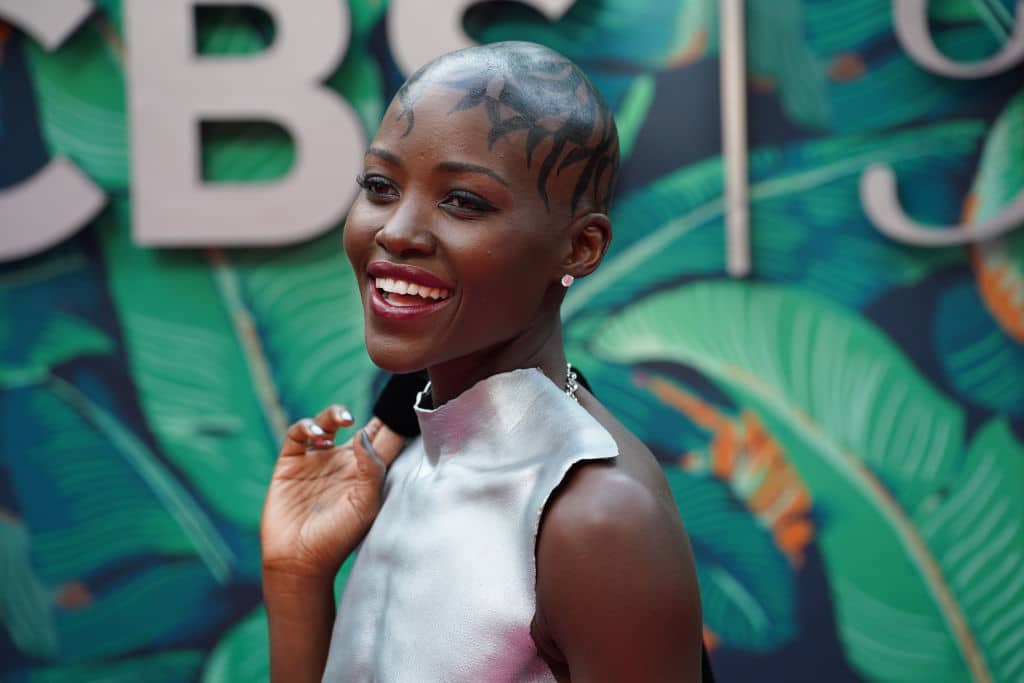
The Oscar-award winning actress was born in Mexico but grew up in Kenya. The Black Panther lead is the daughter of Kenyan politician and author, Peter Anyang’ Nyong’o.
4. Danai Gurira, Zimbabwe
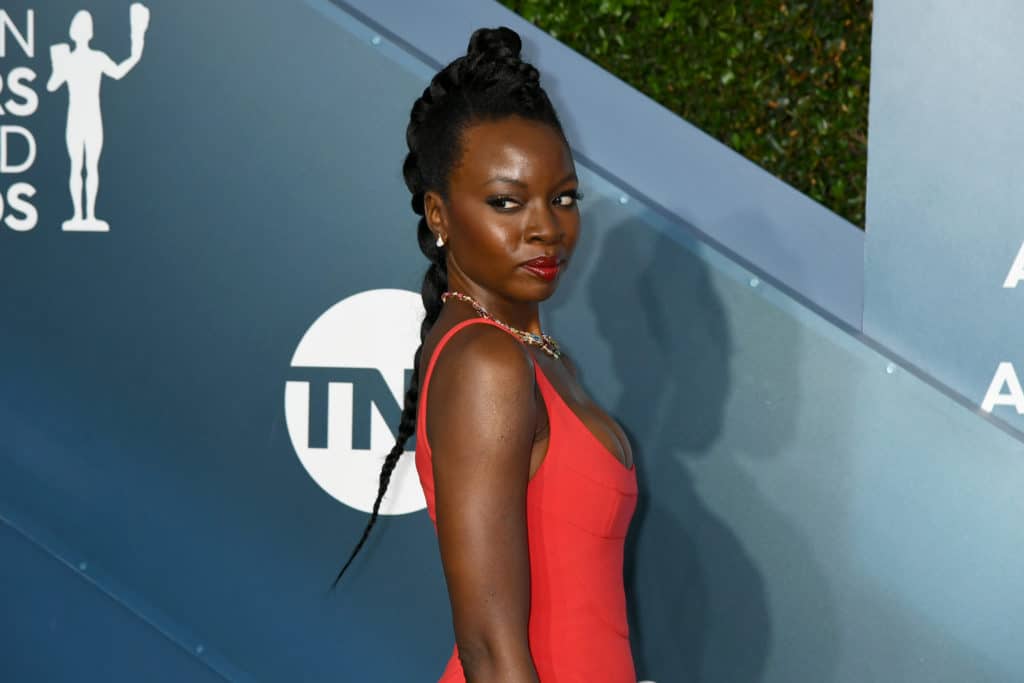
Also a star of Marvel’s Black Panther, Gurira was born in the US but at the age of five moved to her ancestral home in Zimbabwe. “I grew up in southern Africa. I grew up around African women.
So, absolutely, in all, I’ve been around a lot of African women,” Gurira said in a 2019 interview with FORBES AFRICA. “I understand a lot about who we are and what makes us tick. I also understand that there’s our specificity in terms of ways that I don’t think we get to often see African women portrayed.”
5. Thuso Mbedu, South Africa
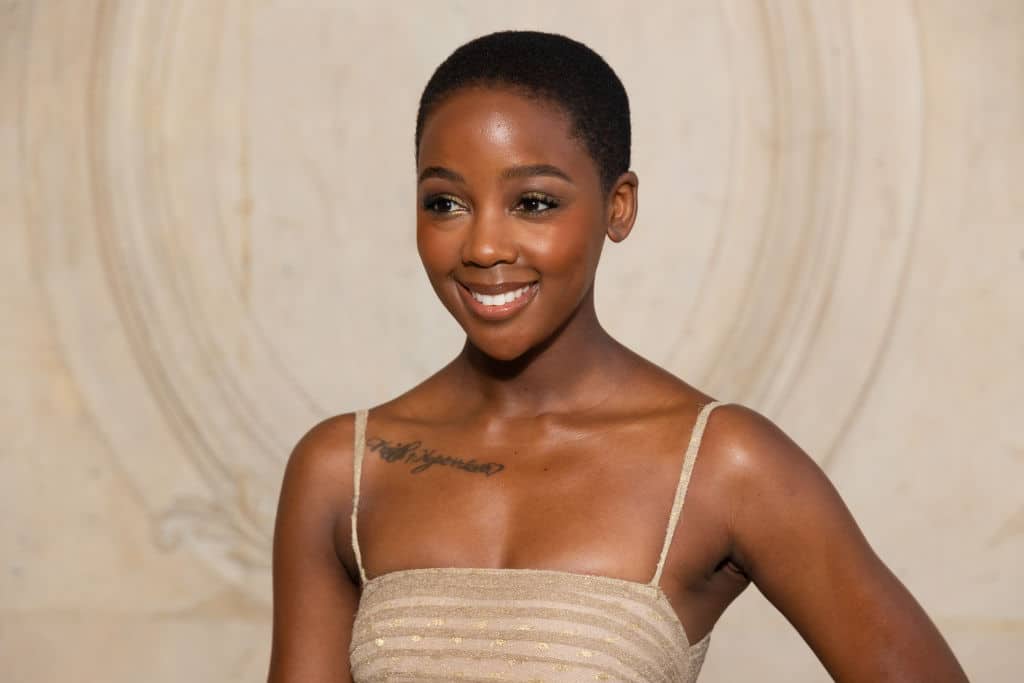
Known for her breakout role in the 2021 series The Underground Railroad, Mbedu has since continued to wave the South African flag high performing in big Hollywood productions. She recently starred in The Woman King with Viola Davis.
6. Trevor Noah, South Africa
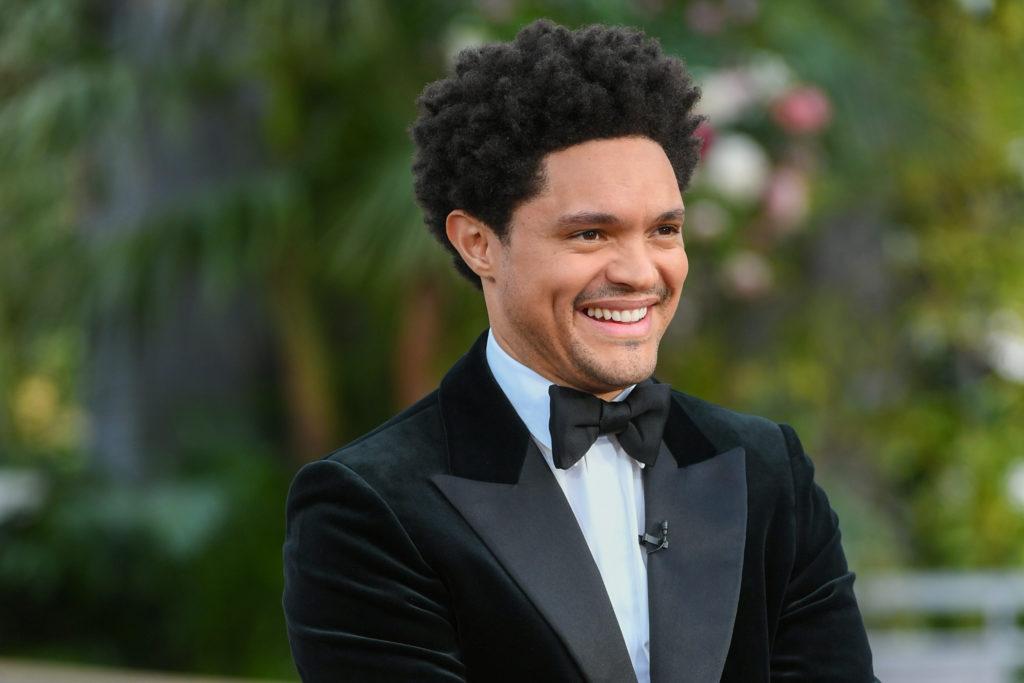
In 2022, the South African made headlines when he decided to step down as The Daily Show host after seven years to focus more on his career as a comedian. In 2019, Forbes noted him in its ‘Highest-Earning Stand-Up Comedians’ list.
7. Charlize Theron, South Africa
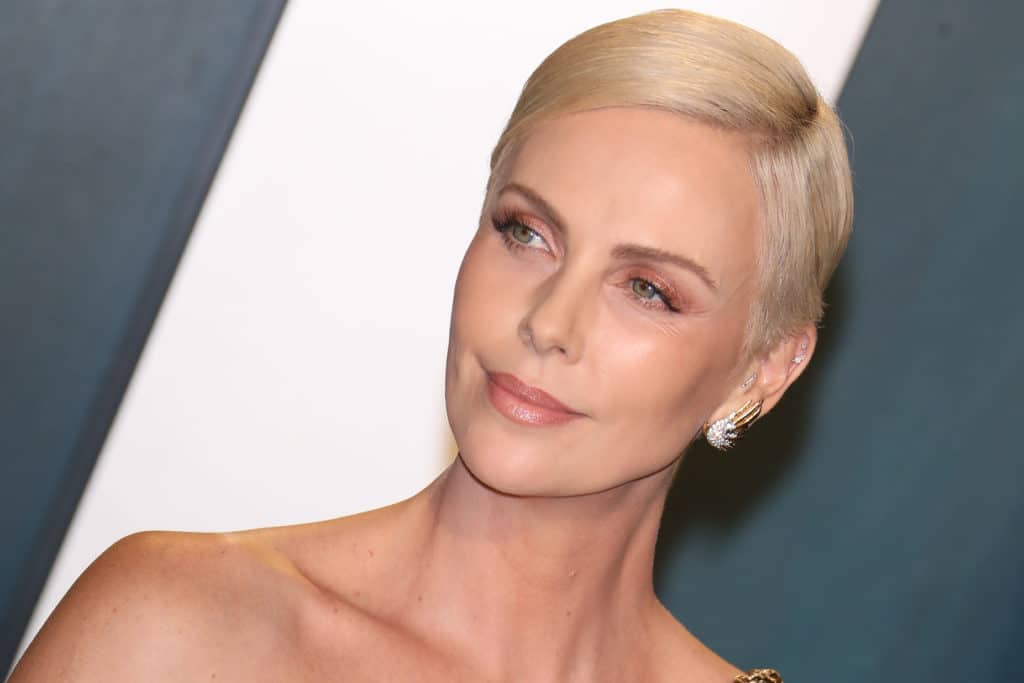
Having grown up on a farm in South Africa, the award-winning actor is a Hollywood mega star proud of her African roots. She also has a foundation, the Charlize Theron Africa Outreach Project.
For climate, food and smallscale farmers
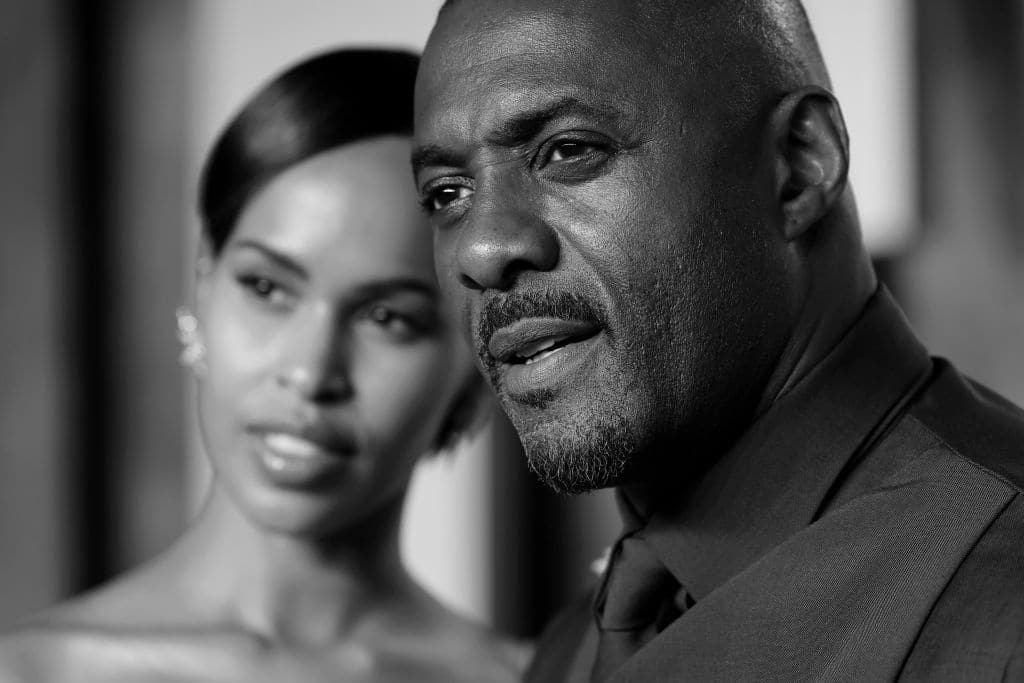
Elba’s repertoire extends beyond cinema and the development of an island. The actor has also charted considerable work on the ground in Africa to tackle the climate crisis and food insecurity.
And this is not work he does alone.
Since becoming United Nations Goodwill Ambassadors for the International Fund for Agricultural Development (IFAD) in 2020, Elba and his wife Sabrina have been vocal proponents for greater investments in agriculture and rural development, particularly
in Africa where severe weather events and conflicts have further impacted smallscale farmers’ ability to produce food for their families, communities and countries.
Smallscale farmers produce up to 70% of the food in Africa and one-third of the food globally.
Despite the important role these farmers play in ensuring global food security, 75% of the world’s hungry and poorest people live in the rural areas of developing countries.
“Africa is the world’s second lung,” Elba says. “I think that the stats are that it absorbs 1.2 billion tons of carbon. And it’s a huge absorber of carbon yet…it suffers the most when it comes to climate control and the climate debate. This immediately impacts the food on the continent, it immediately impacts agriculture, which is the only way we as Africans sustain ourselves outside of imports [of ] our food.”
“THE WORK WE DO LOOKS AT RURAL COMMUNITIES, AND HOW TO SUPPORT RURAL COMMUNITIES THROUGH AGRICULTURE AS A MEANS OUT OF POVERTY AND A PATH TO INDEPENDENCE.”
“The work we do looks at rural communities, and how to support them through agriculture as a means out of poverty and a path to independence,” Sabrina tells FORBES AFRICA. “We’re super-passionate about the work that we do. It’s a cause that we passionately champion together. [We] try to find the intersectionality between gender and climate. Idris, who looks at the continent as a whole, is always looking for opportunities in Africa.”
“We are extremely grateful to Idris and Sabrina for being IFAD champions and calling on governments, development partners and the private sector to step up investments in rural people and small- scale agriculture, particularly in Africa,” Alvaro Lario, President of IFAD, tells FORBES AFRICA.
“They are passionate advocates for hundreds of millions of vulnerable rural women, youth and men. Through their efforts we are reminded of the important role that smallscale farmers play in ensuring a healthy and food-secure future for us all.”
This year, Time magazine noted how the Elbas traveled to Sierra Leone to visit an IFAD-supported project, where they met farmers who had received financial assistance and rice production support after Ebola.
For Elba, the passion for everything he does will always come from his love for the continent: from acting in award-winning films to his work as a social activist and philanthropist and building businesses.
“If it wasn’t for my parents, I don’t know if I would have this inherent pride I have to be African,” says Elba in closing.
“I don’t think the world would allow me to do [what I am doing]. Because the picture that’s painted of Africa is not one that entices people to go back there and spend their money and develop.
“This is a place where the opportunity is incredible. And yes, like anywhere in the world, there are issues, there is adversity, there are things that we have to overcome, but name a place that isn’t like that. So I definitely know that my upbringing has kept my focus on Africa. But this idea that I was told that Africa is not cool, it’s also kept me going forward.”
